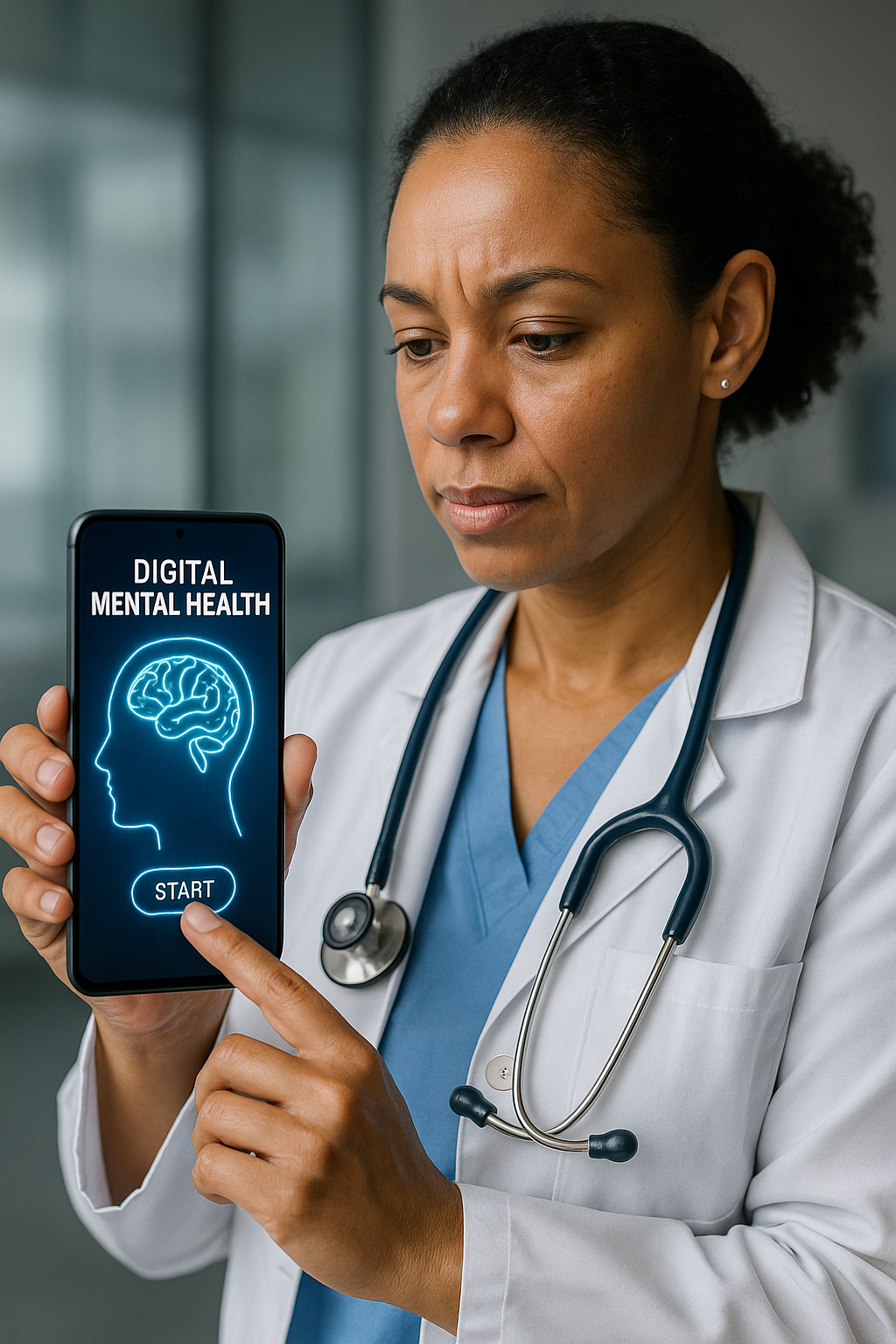AI Therapists: 7 Critical Insights from Testing Wysa’s Mental Health Revolution
Testing Wysa AI therapists reveals 7 shocking truths about digital mental health apps. Can algorithms really replace human empathy in psychological support?
We’re living through a mental health paradox. While anxiety and depression rates skyrocket globally, traditional therapy remains frustratingly inaccessible—waitlists stretch for months, costs are prohibitive, and stigma persists. Enter AI therapy apps like Wysa, promising 24/7 psychological support at your fingertips. But here’s the million-dollar question: Can an algorithm truly understand human suffering?
As a medical professional who’s witnessed both the promise and peril of healthcare AI, I spent a month testing Wysa to separate revolutionary potential from dangerous hype. What I discovered challenges everything we think we know about digital mental health.
The Algorithmic Therapist: Medical Marvel or Digital Delusion?
Picture this clinical scenario: It’s 3 AM, your patient is experiencing a panic attack, and no human therapist is available. In pre-digital medicine, we’d prescribe anxiolytics and hope for the best. Today, apps like Wysa claim to provide immediate psychological intervention using validated therapeutic protocols.
Wysa positions itself as evidence-based AI, combining Cognitive Behavioral Therapy (CBT) and Dialectical Behavior Therapy (DBT)—two gold-standard approaches in psychiatry. The app’s free tier offers basic conversational support, while premium features include guided meditations and advanced therapeutic exercises.
But here’s where medical skepticism kicks in: Can artificial intelligence truly replicate the nuanced clinical judgment that takes human therapists years to develop?
The Clinical Reality Check: What Medical Literature Actually Says
Dr. Sarah Williams, a clinical psychologist specializing in digital therapeutics, frames the debate perfectly: “This evolution was inevitable given the shortage of mental health professionals and growing patient needs. The advantages are clear—24/7 availability and reduced barriers to access. However, AI cannot replace authentic human empathy or manage complex psychiatric presentations.”
The research supports cautious optimism. A 2023 systematic review in JAMA Psychiatry found that AI-driven interventions showed moderate effectiveness for mild-to-moderate anxiety and depression. However, the same studies highlighted concerning gaps in crisis management and treatment of severe psychiatric disorders.
What’s particularly intriguing from a medical perspective is the phenomenon of digital disinhibition—patients, especially adolescents, often disclose more freely to AI than human clinicians. This suggests AI therapy might access psychological material that traditional approaches miss.

Seven Critical Insights from Real-World Testing
1. Crisis Management: Life-or-Death Algorithm Performance
The ultimate clinical test: What happens when someone expresses suicidal ideation to Wysa?
Remarkably, the app excelled here. Mentioning suicide triggered immediate crisis protocols—directing users to emergency services like the Samaritans in the UK, providing empathetic responses, and maintaining engagement until professional help was secured.
From a medical liability standpoint, this is crucial. An AI therapist that misses suicide risk detection isn’t just ineffective—it’s potentially lethal. Wysa passes this critical safety threshold.
2. Evidence-Based Therapeutic Interventions: Real Medicine or Placebo?
As a medical professional, I scrutinized Wysa’s therapeutic content for clinical validity. The surprise? The app genuinely implements evidence-based CBT techniques like cognitive reframing and behavioral activation. Guided meditation protocols follow established mindfulness-based interventions.
This isn’t revolutionary—it’s medical protocol automation. But for an AI system, correctly applying existing therapeutic frameworks represents significant clinical achievement.
3. Technical Reliability: When Digital Health Fails at Critical Moments
Here’s where the medical reality becomes problematic: The app crashes. Frequently. Often during emotionally vulnerable conversations.
In traditional medicine, we understand that treatment continuity is paramount. Imagine if a cardiac monitor failed during surgery, or an insulin pump malfunctioned during diabetic ketoacidosis. Technical failures in mental health AI aren’t just frustrating—they’re potentially harmful therapeutic ruptures.
4. Clinical Memory and Continuity: The Electronic Medical Record Problem
Perhaps most concerning from a clinical perspective is Wysa’s inability to maintain session-to-session memory. Each interaction begins from zero, requiring patients to repeatedly re-establish their clinical history.
In human medicine, continuity of care is fundamental. Electronic medical records exist precisely because clinical context matters. An AI therapist with goldfish memory violates basic principles of effective healthcare delivery.
5. Therapeutic Pace and Engagement: The Digital Communication Challenge
Text-based therapy is inherently slower than verbal interaction. While this might suit some patients who need processing time, others may find the pace frustratingly disconnected from their emotional urgency.
From a neuroscience perspective, verbal communication activates different brain regions than written text. We’re essentially asking patients to engage in therapeutic work using a neurologically suboptimal modality.
6. Data Security and Medical Privacy: HIPAA in the Digital Age
Wysa demonstrates exemplary data practices—complete anonymity, GDPR compliance, ISO certifications. In an era where health data breaches make headlines weekly, this represents best-practice medical informatics.
However, true anonymity in mental health AI raises its own clinical questions. How do we track treatment outcomes or identify patterns without patient identifiers?
7. Clinical Efficacy: Measuring Real-World Therapeutic Outcomes
The honest medical assessment: Wysa shows measurable benefit for crisis management and basic anxiety reduction. But for complex psychiatric presentations requiring longitudinal care? Its limitations become apparent quickly.
This mirrors what we see in other medical AI applications—excellent performance within narrow, well-defined parameters, but struggles with clinical complexity and edge cases.
The Competitive Landscape: Evaluating Digital Mental Health Ecosystems
The AI therapy market isn’t just Wysa. Let’s examine key competitors through a clinical lens:
Woebot takes a more playful, gamified approach to CBT delivery. While engagement metrics are strong, the “chatbot personality” may trivialize serious mental health conditions.
Replika positions itself as an AI companion rather than medical intervention. This distinction matters—medical AI should maintain clear therapeutic boundaries that Replika’s conversational freedom might blur.
Youper integrates mood tracking with therapeutic conversation, providing quantified mental health data. From a medical monitoring perspective, this longitudinal approach shows promise.
Each platform reveals different philosophical approaches to digital mental health—entertainment versus medical intervention, broad conversation versus focused therapy, individual support versus community engagement.
The Future of AI in Mental Healthcare: Medical Predictions
As healthcare AI continues evolving, several transformative developments appear inevitable:
Natural Language Processing will enable voice-based therapy sessions, incorporating tonal analysis and emotional detection. Imagine AI that recognizes depression not just from words, but from vocal biomarkers like speech patterns and pause duration.
Predictive Analytics could identify mental health crises before they occur, analyzing patterns from wearable devices, social media activity, and behavioral data. Early intervention represents the holy grail of psychiatric medicine.
Integrated Care Models will connect AI therapy with human clinicians, creating hybrid treatment approaches that leverage both technological efficiency and human empathy.
The most exciting prospect? Precision Psychiatry—AI systems that customize therapeutic interventions based on genetic, neurobiological, and behavioral profiles. We’re moving toward personalized mental healthcare as sophisticated as precision oncology.
The Medical Verdict: Promise, Peril, and Clinical Recommendations
From a healthcare perspective, Wysa represents meaningful progress in democratizing mental health support. The app successfully provides immediate, accessible, evidence-based interventions that many patients couldn’t otherwise access.
Its clinical strengths include robust crisis management, appropriate therapeutic protocol implementation, and exemplary data security practices. For healthcare systems struggling with mental health access, AI therapy offers genuine scalability potential.
However, significant clinical limitations remain. Technical reliability issues, lack of session continuity, and inability to manage complex psychiatric presentations limit its medical utility.
Clinical Recommendations:
For healthcare providers: Consider AI therapy as adjunct treatment for mild-to-moderate anxiety and depression, particularly during treatment waiting periods. Never as primary intervention for severe psychiatric disorders.
For patients: Excellent first-line support for daily stress management and basic therapeutic skill acquisition. Insufficient for trauma, bipolar disorder, or complex psychiatric presentations.
For healthcare systems: Valuable tool for extending mental health resources, but requires integration with human clinical oversight.
The Ethical Frontier: What We’re Really Deciding
The deeper question isn’t whether AI can provide effective therapy—early evidence suggests qualified success. The question is whether we’re comfortable with algorithmic intimacy in our most vulnerable moments.
Medicine has always balanced technological advancement with human connection. Stethoscopes didn’t replace clinical examination—they enhanced it. MRI didn’t eliminate the need for physician interpretation—it provided better data for human decision-making.
AI therapy represents a similar inflection point. We’re not replacing human empathy with algorithms—we’re augmenting healthcare capacity with technology that can provide immediate, evidence-based support when human clinicians aren’t available.
The future of mental healthcare will indeed be digital. But like all medical technology, its value lies not in replacing human judgment, but in extending our ability to help more people, more effectively, more accessibly.
The revolution isn’t about choosing between human therapists and AI—it’s about creating integrated systems that combine technological efficiency with human wisdom. That’s a future worth building.
Recommended Resources:


